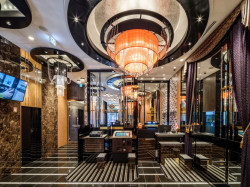
One of the cornerstones of American fast food service has long been customization. “Have it your way,” the long-running slogan of Burger King, shaped customer expectations in the U.S. since its first use in the 1970s. With such options—more akin to a Burger Bill of Rights—woven into the fabric of our quick-dining life, first encounters with Japanese service can be shocking.
I still recall one of my first experiences with McDonald’s upon my arrival in Japan in 1997. Not being a fan of pickles, I was accustomed to having them left off my burgers in the States. Naturally, I asked for the same here. What transpired next was unexpected: Like a football team debating the perfect play, the staff and manager huddled together for a lengthy discussion. The call? “No can do.” I was dumbfounded.
Then there’s the recurring tale with which many readers will be familiar: The ketchup caper. In America, ask for ketchup and you’ll be handed a fistful of packets by staff more eager to see you leave than to prolong the interaction. But in 1997—and for many years after—Japan seemed to be under some sort of ketchup conservation program: One packet per customer, regardless of what’s ordered. Asking for two packets might as well have been asking for a free burger.
Once, I managed to finagle extra ketchup at KFC. After another confab with her manager, the lovely cashier provided me with one additional packet “just this time only.” She pulled out a small white paper pouch, placed the packet inside, folded it neatly closed, and sealed it with a small piece of tape. I carried this back to my table, opened it, and emptied the packet. (Wasteful packaging remains a problem, but that’s another discussion.) Wow, that was a lot of work, I thought.
Eventually, as with so many aspects of life in Japan as an expat, I adapted. The position of the fast food industry didn’t change, but my expectations did. I stopped asking to have it my way—and I learned to like pickles. I also kept my own ketchup around because, as Kenny Rogers said, you’ve got to know when to fold ’em. Some things just aren’t worth the fight.
Though the disconnect between both sides of the counter was frustrating, I appreciated that denial also came with a smile. And eating a few pickles in exchange for polite service isn’t so bad. Service in America can be so horrid that you never visit the restaurant again; I’ve rarely had that experience in Japan.
The well-mannered nature of Japanese customer service is perhaps the root of the confusion many feel when experiencing everyday life here for the first time. How can the person serving you be so nice and helpful, yet so completely inflexible? Well, the reason is something else you learn over time.
My adaptation, I suppose, was part of becoming Japanese. Dealing with seemingly inconsequential “problems” like this helps you learn what’s expected if you want to truly blend into your new home culture. And honestly, mandatory toppings and strict saucing were good for me. I’m far less picky about my food, and I’m more understanding of differences.
Thankfully, things have evolved over the years. Japan’s fast food industry has slowly learned that, while a strict production process is good, making customers happy is better. Today, I’m rarely denied extra ketchup, and modifications are generally accepted without debate.
Refills on drinks? Maybe one of these days. A guy has to have a dream.







